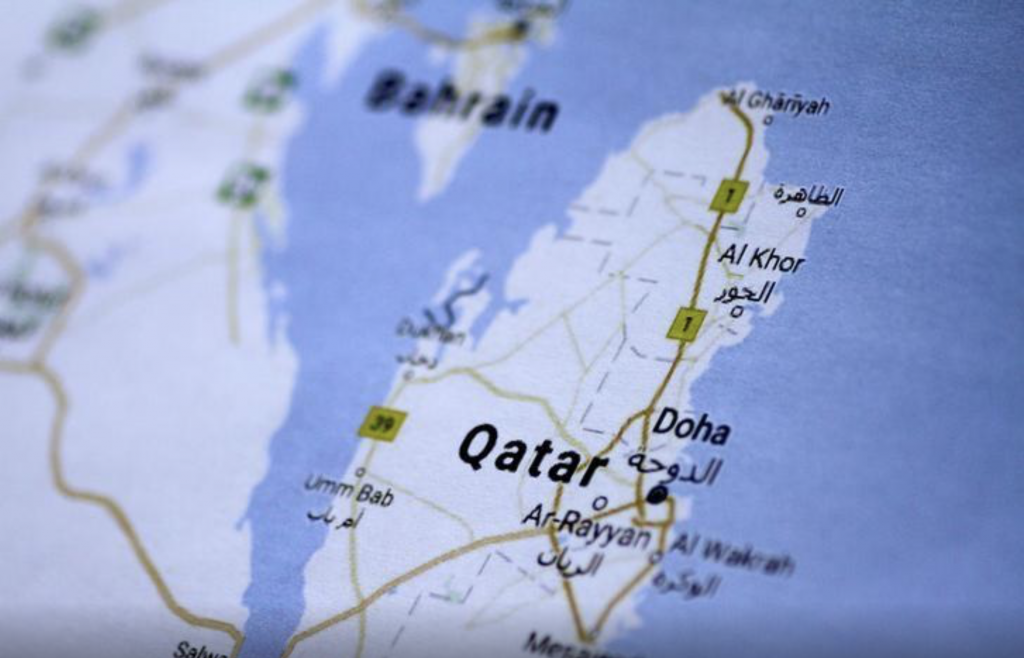This week, big news came out about a breakthrough in the negotiations to resolve the Gulf dispute that has raged for more than three years, signaling a shift in a crisis that has pitted valuable U.S. allies against each other. Among those allies are the following key regional players, Qatar that hosts the region’s largest U.S. military base, Bahrain which is home to the U.S. Navy’s Fifth Fleet, and Saudi Arabia and the UAE also hosts for U.S. troops.
Context
Saudi Arabia, the United Arab Emirates, Bahrain and Egypt cut transport and diplomatic links with Qatar in mid 2017, accusing their neighbour of supporting Islamist groups and being too close to Iran. After imposing the embargo three years ago, Riyadh and Abu Dhabi presented Doha with an extraordinary list of 13 demands that included closing Al Jazeera, the Qatari-funded television network, curbing Doha’s relations with Iran and closing a Turkish military base.
Breakthrough and its Limitations
Kuwait, which led days of mediation efforts with the U.S., said on Friday, 04 December, the Arab rivals had “confirmed their commitment” to reach a final agreement and preserve “Gulf solidarity”. A person briefed on the talks said it was the first time all five Arab countries involved in the dispute had agreed to negotiations to end the crisis. Sheikh Mohammed bin Abdulrahman al-Thani, Qatar’s foreign minister, said the Kuwaiti statement was “an imperative step” towards resolving the dispute. Prince Faisal bin Farhan, the Saudi foreign minister, said “significant progress” had been made in the last few days. “We hope this progress can lead to a final agreement which looks in reach . . . I am somewhat optimistic that we are close to finalising an agreement between all the nations in the dispute,” he told a conference via video. Mike Pompeo, U.S. Secretary of State, said he was “very hopeful” that the dispute would be resolved. Qatar denied the allegations against it and all sides had refused to make concessions, resisting pressure from Washington’s to resolve the crisis. But in recent weeks, Saudi Crown Prince Mohammed bin Salman has stepped up Riyadh’s efforts to repair relations with Doha.
There had been speculation that Riyadh and Doha would agree to “confidence building” measures. Securing a deal to allow Qatari flights to fly over rival Gulf states was considered to be one of the likeliest first steps to improve relations. But there was no mention of any such moves in Friday’s statements.
However, the UAE had been the most resistant to agree to the rapprochement, partly because Abu Dhabi is particularly concerned about Qatar’s relationship with Turkey. The UAE has become increasingly worried about Turkey’s influence in the Arab world and accuses Turkey president Recep Tayyip Erdogan of pursuing a “neocolonial” policy in the region. Sheikh Mohammed al-Thani, Qatar’s foreign minister, told a conference on Friday that any resolution to the crisis should be “holistic” and that Doha did not want to distinguish between countries in dialogue towards forging a unified Gulf. He declined to distance Qatar from Turkey, which deployed troops to Qatar when the dispute erupted in 2017. “It is our duty to stand with Turkey when they face any difficulties,” he said.
Reasons Behind this Rapprochement:
- Prince Mohammed, Saudi Arabia’s de facto leader, is trying to ease the crisis to improve his standing with President-elect Joe Biden, who has publicly criticized the kingdom over human rights abuses.
- The Trump administration has also been keen to secure a breakthrough before its term ends in January, because concerned that the dispute weakens the Arab alliance it has sought to forge against Iran. It has also been frustrated that Tehran has benefited financially as the embargo has meant flights to and from Qatar are forced to use Iranian airspace.
Implications for the Region and Egypt:
First, in case the crisis was resolved, the Gulf arc will be re-built against Iran, which will, besides altering the balance of power between Saudi and Iran, will also disturb revenues of income that Qatar extended to Iran through it using its airspace. These economic and political pressures will increase the Iranian isolation especially with the arab warming of relations with Israel after the three peace agreements that UAE, Sudan and Bahrain signed with Israel.
Second, we might see a tougher Iranian stance in the nuclear talks with Biden as with such alteration in the balance of power, Iran will be very keen to increase its nuclear might, hence, complications the talks that would be revolving around restricting Iran’s missiles and nuclear might.
Third, if Qatar agreed to close the Turkish military base, there will be an increased Iranian-Turkish co-operation. Currently, there is a regional co-ordination between Turkey and Iran with what has to do with the Kurdish insurgency and the Saudi regional moves. This co-ordination was relatively hindered by the disagreement over the Syrian conflict, however, they got over their disagreement in this area.
Fourth, the changes in the proxy war in Yemen will depend on the direction of two possible implications. On the one hand, Iran may upscale its offensive in Yemen to counterbalance the increased Saudi power after the resolution of the gulf conflict. On the other, Qatar will back down from meddling in Yemen against Saudi.
For Egypt, the implications will be mostly the following:
First, there will be reconciliation with what has to do with Al Jazeera TV network. For example, its office in Egypt could be re-opened, and its website made accessible for users in Egypt.
Second, the Qatari tourism to Egypt will be resumed. A big chunk of tourism to Egypt is from the gulf, and since the crisis the Qatari share in had tremendously decreased because of the scrutiny involved in getting a visa. Also, Qatari investments will flow again after years of structural discouragement.
Third, a wide natural gas cooperation between Qatar and Egypt could take place, as both countries are currently putting effort in gas exploration and are discovering more and more of it. In fact, natural gas exploration is one of the shapers of the regional politics in the long term.


